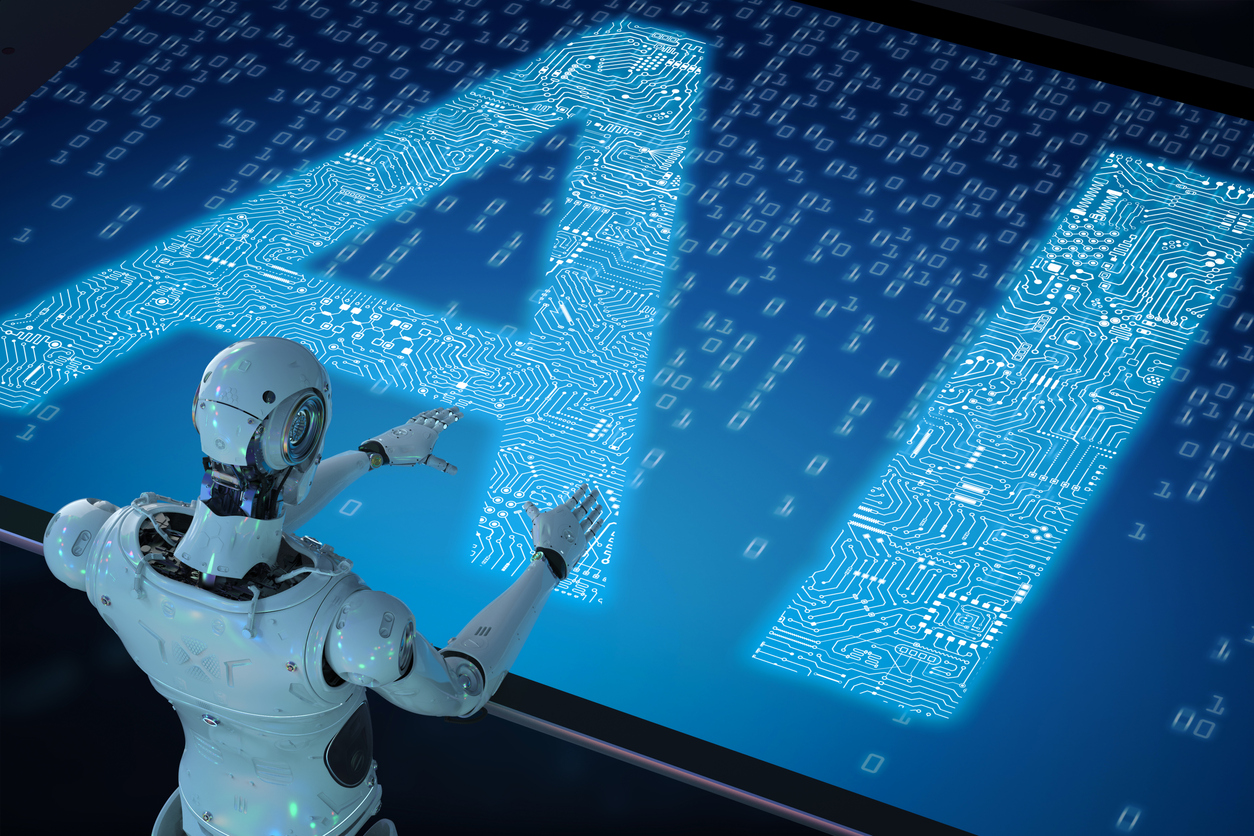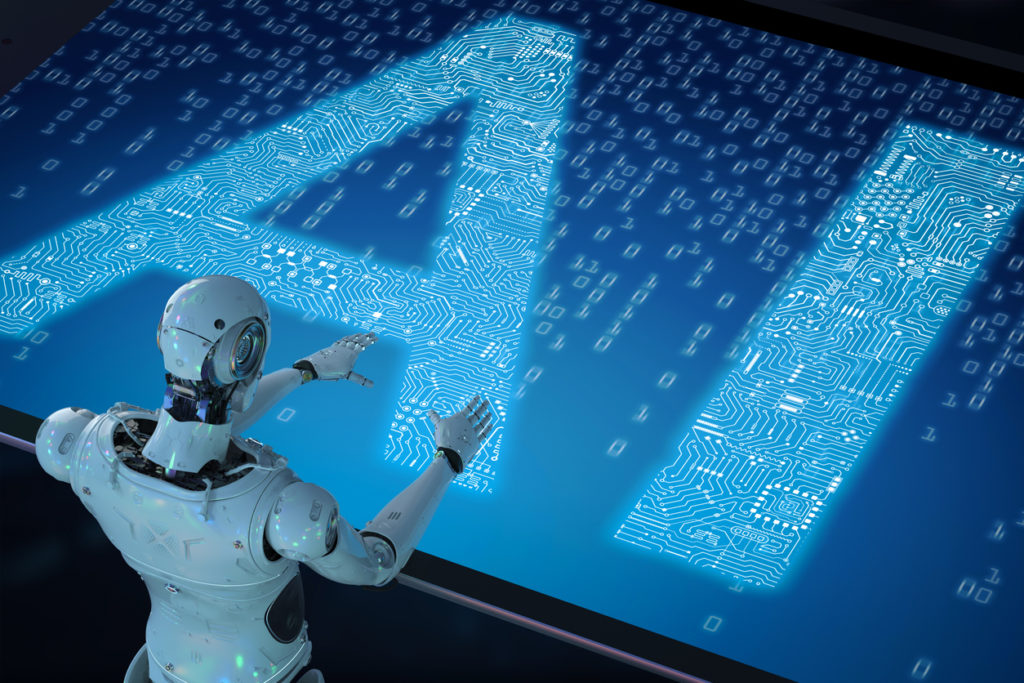Is ‘Next-Gen’ AI Technology the Way Forward for the U.S Military?

"*" indicates required fields

 In September of last year, the research wing of Pentagon announced that it will be investing $2 billion in the next generation of artificial intelligence (AI) technology. Investments in AI technology by the military is nothing new. In fact, AI is fast becoming a critical part of modern warfare, attracting more and more interest and investments from militaries around the world. This includes the U.S military. So, is ‘Next Gen’ AI technology the way forward for the U.S military? We discuss that here!
In September of last year, the research wing of Pentagon announced that it will be investing $2 billion in the next generation of artificial intelligence (AI) technology. Investments in AI technology by the military is nothing new. In fact, AI is fast becoming a critical part of modern warfare, attracting more and more interest and investments from militaries around the world. This includes the U.S military. So, is ‘Next Gen’ AI technology the way forward for the U.S military? We discuss that here!
Investments in artificial intelligence (AI) technology by the military are increasing by the day. In fact, some experts estimate that global military spending on AI will increase from $6.26 billion in 2016 to $18.82 billion in 2025. If we talk about the U.S military only, the Pentagon has recently announced investments of $2 billion over the next five years in the ‘next gen’ AI technology.
According to the Steven Walker—the director of the Defense Advanced Research Projects Agency (DAPRA), the funds will be utilized over the next five years in twenty existing projects and over the next twelve months, new projects will be launched that seek a higher level of machine learning. Talking to reporters, Walker has the following to say:
“We want to explore how machines can acquire human-like communication and reasoning capabilities, with the ability to recognize new situations and environments and adapt to them[1]”
The U.S military is desperate to weaponize AI as rival militaries such as the Russian and Chinese armed forces have already started to build centers for military AI. The above investments are just one of the many measures the U.S military is taking to make artificial intelligence the next big thing in their arsenal. However, it is in a three-way race with Russia and China for gaining supremacy in military AI. China is ahead right now as it built its center for military AI in spring of last year.
Although efforts are underway, the U.S and Russia are yet to build their centers for military AI. However, it won’t be long before we see the first U.S Joint Artificial Intelligence (AI) center. The increased efforts and investments of the Pentagon in military AI are mainly due to the Chinese adventurism in military AI technology. In March this year, Chinese media televised military tests of a fleet of remote-controlled tanks and there were suggestions that these tanks would eventually be paired with AI technology. This is just one example of how China is looking to surge ahead in the race to become the pioneer and leader in AI military technology.
However, there is hope that the $2 billion investments in military AI announced in September would kickstart the AI revolution of the U.S military. When new technology arrives, the current generation of smart machines and robots become difficult to update. This is the reason researchers want these machines and robots to learn to update themselves.
The investments in military AI will be focused to design smart machines in a way that accelerates accreditation of software systems and speeds up security clearance vetting. Funded entirely by Pentagon, most of the research of DAPRA focuses on technologies that can utilized in battle. Drones that are becoming increasingly autonomous are an example of this technology. Blackjack project—another initiative of DAPRA, is focused on the development of a constellation of low-orbit satellites. Not only will these satellites communicate with each other, they will also continuously cover military operations.
There are many potential applications of AI for the military. Additionally, there is a possibility to create more nimble systems at lower cost if frozen software is replaced by systems that do not require periodic refreshing. Artificial intelligence (AI) technology could also be used in military to train systems. For example, unpredictable and adaptive challengers could be provided by AI to train fighter pilots.
In addition to the above, AI could play a pivotal in helping process the sea of data from surveillance or ‘patter-of-life’ surveillance systems by providing computer vision—the software’s ability to understand photos and videos. While it isn’t in the works yet, the U.S military could benefit from facial recognition AIs like China is already doing. Additionally, ‘skills gaps’ in complex maintenance can be closed using augmented reality (AR). Internationally airlines are already using this technology.
Another potential application of AI in military is NLP—a technology used by virtual assistants such as Alexa to communicate with humans using natural language. Without the need for keyboards, orders can be placed using systems enabled by NLP. Not only that, NLP could also be used to translate documents in the future.
The use of AI could help the U.S military to solve many of its logistics challenges. Additionally, the technology would come handy in war games and in automating combat in the manned-unmanned operations. Finally, artificial intelligence (AI) technology could be used by the U.S military to speed up the development and optimization of weapons.
Many believe that the U.S military needs help from companies such as Google to be successful in AI venture. However, Google and the like have been reluctant to partner with Pentagon in the development and optimization of military AI. After it was announced in March this year that Google would be participating in Project Haven, thousands of the company’s employees signed a petition against the collaboration and even resigned in protest. Ultimately, Google decided not to renew its contract for project Haven.
Disappointed by Google’s decision to not renew its contract for Project Haven, military officials claimed that if Google won’t help military develop AI, then someone else will. However, the truth of matter is that Pentagon cannot develop and optimize military A.I without help from the likes of Google. To know more about the applications of AI for the U.S military, get in touch with us today!
[1]https://globalnews.ca/news/4435519/us-military-artificial-intelligence-investment/
There are many potential applications of AI for the military. Additionally, there is a possibility to create more nimble systems at lower cost if frozen software is replaced by systems that do not require periodic refreshing. Artificial intelligence (AI) technology could also be used in military to train systems. For example, unpredictable and adaptive challengers could be provided by AI to train fighter pilots.
In addition to the above, AI could play a pivotal in helping process the sea of data from surveillance or ‘patter-of-life’ surveillance systems by providing computer vision—the software’s ability to understand photos and videos. While it isn’t in the works yet, the U.S military could benefit from facial recognition AIs like China is already doing. Additionally, ‘skills gaps’ in complex maintenance can be closed using augmented reality (AR). Internationally airlines are already using this technology.
Another potential application of AI in military is NLP—a technology used by virtual assistants such as Alexa to communicate with humans using natural language. Without the need for keyboards, orders can be placed using systems enabled by NLP. Not only that, NLP could also be used to translate documents in the future.
The use of AI could help the U.S military to solve many of its logistics challenges. Additionally, the technology would come handy in war games and in automating combat in the manned-unmanned operations. Finally, artificial intelligence (AI) technology could be used by the U.S military to speed up the development and optimization of weapons.
Many believe that the U.S military needs help from companies such as Google to be successful in AI venture. However, Google and the like have been reluctant to partner with Pentagon in the development and optimization of military AI. After it was announced in March this year that Google would be participating in Project Haven, thousands of the company’s employees signed a petition against the collaboration and even resigned in protest. Ultimately, Google decided not to renew its contract for project Haven.
Disappointed by Google’s decision to not renew its contract for Project Haven, military officials claimed that if Google won’t help military develop AI, then someone else will. However, the truth of matter is that Pentagon cannot develop and optimize military A.I without help from the likes of Google. To know more about the applications of AI for the U.S military, get in touch with us today!
Percento is a Professional IT Consulting, Implementation and Management firm. To find out how we can help your organization, please contact one of our friendly sales representatives for a review of your system and a comprehensive (No Obligation) proposal of services. Call today toll-free at 800.614-7886 [Austin | Dallas | Houston | League City | Sugar Land | The Woodlands | San Antonio] or email us at sales@percentotech.com.